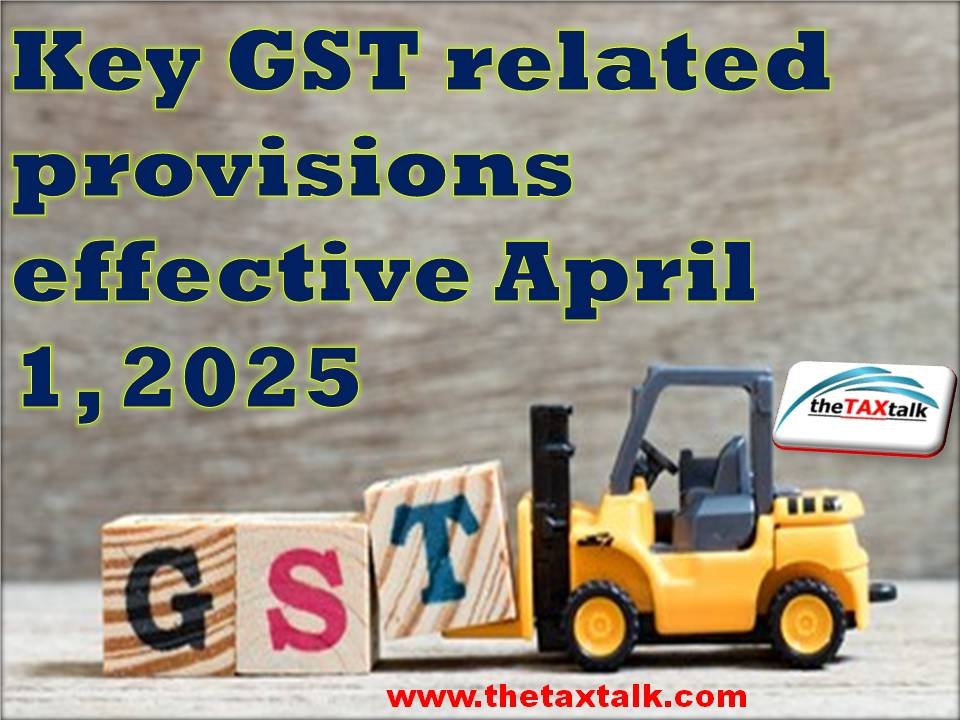![]()
Key GST related provisions effective April 1, 2025
The new Goods and Services Tax (GST) rules are here, bringing transformative changes to enhance compliance, security, and efficiency. Here’s a snapshot of the key updates:
Mandatory Multi-Factor Authentication (MFA): All GST taxpayers must now use MFA to access the GST portal, ensuring enhanced security and preventing unauthorised access.
Input Service Distributor (ISD) Mechanism: Businesses operating across multiple states must adopt the ISD system to distribute Input Tax Credit (ITC) on shared services like rent and advertising. Non-compliance may lead to penalties.
E-Way Bill Restrictions: E-Way Bills can now only be generated for invoices issued within the last 180 days, ensuring accurate and timely documentation.
Biometric Authentication for Directors: Directors and promoters are required to complete biometric authentication at GST Suvidha Kendras in their home states.
Invoicing Compliance: Businesses with an annual turnover of ₹10 crore or more must upload e-invoices to the Invoice Registration Portal (IRP) within 30 days of issuance. Late submissions will be rejected and may attract penalties.
GST Rate Adjustments: The “Declared Tariff” concept for hotels has been abolished. GST is now applied to the actual amount charged. For example, hotels charging over ₹7,500 per unit per day will attract 18% GST. Hotels charging ₹7,500 or less per unit per day will continue to attract 5% GST without input tax credit (ITC).
Sequential Filing of GSTR-7: Taxpayers filing GSTR-7 (TDS under GST) must adhere to a sequential filing order, streamlining TDS collection and ITC reconciliation.
Stay compliant and make the most of these updates to ensure smooth operations!


